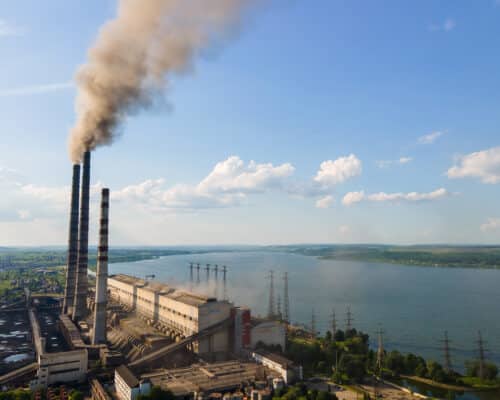Asia’s Role in the Russia-Ukraine War: One Year Later
21 March 2023 – by Viktor Tachev
The Asian region has been hugely affected by soaring global inflation and worsening energy poverty as a result of the Russia-Ukraine war. However, the latest research shows that Asian countries have actually helped fund the war through the purchase of fossil fuels from Russia. Due to countries’ fossil fuel-oriented policies and their heavy reliance on Russian energy exports, Russia is able to receive funds that it continues to use for its war effort.
The Russia-Ukraine War From an Energy Market Perspective
In a series of reports over the past year, CREA has been warning that the purchases of fossil fuels have enabled Russia to continue the war. Furthermore, the research organisation found that fossil fuel revenues have even outstripped the invasion costs.
While some countries were quick to impose bans and end the import of Russian fossil fuels, many others continued the practice. Asian nations, including China, India, Japan and South Korea, have been among the primary buyers of Russian fossil fuels.
When the war began, there was an immediate knock-on effect on countries worldwide. The heavy reliance on Russian fossil fuels exacerbated the problem of high inflation worldwide. The energy market turbulence has massively increased the cost of living, especially for society’s poorest and the most vulnerable.
Over the past year, developing Asian countries struggled with various problems due to continuous and prolonged power blackouts that spurred from the inability to afford fossil fuels.
How the War in Ukraine Is Going: A Year After
Russia’s fossil fuel export revenues have fallen by 50% compared to March 2022. Yet, in January-February 2023, it still made EUR 30 billion in revenue.
In May 2022, Energy Tracker Asia published an article about the lessons Asia can learn from Europe’s energy crisis, discussing its reliance on Russian fossil fuels. The analysis addressed the unreliability of gas supplies, volatile gas prices and their economic impact and highlighted the importance of shifting to renewables.
However, a year later, new research by CREA finds that little has changed. Today, Asia continues to import vast amounts of fossil fuels from Russia, indirectly helping fund its war machine.
China and India
The IEA finds that China and India import a major share of Russian oil exports. Meanwhile, oil and gas revenues make up 46% of Russia’s federal budget.
In 2023, China’s fossil fuel imports from Russia have remained stable. The country is found to be paying Russia more per barrel than any other oil importer.
However, India’s case is different. The country, which has become the third-largest buyer of Russian oil, only started importing after the start of the war. CREA notes that India’s fossil fuel purchases from Russia were virtually zero before that.
Japan and South Korea
The EU, Japan and South Korea import approximately EUR 125 million per day of oil, gas and coal from Russia. Since the start of the year, Japan has paid Russia EUR 14 million per day for fossil fuel deliveries. South Korea has imported fossil fuels at a rate of around EUR 10 million per day.
According to CREA’s data, Japan is now the world’s leading importer of Russian LNG. South Korea is the fourth-largest importer of Russian coal. In July 2022, the countries were fourth and seventh, respectively.
The case of Japan is especially interesting. The country continued to import Russian coal even after it announced a gradual ban.
Japan also became a part of a joint commitment by G7 leaders to ban Russian oil imports. However, it actively advocated for exemptions, which attracted public criticism and made analysts question its commitments.
Due to facing repeated challenges in securing gas supplies from elsewhere, Japan also had to persuade G7 partners to give it the leeway to continue importing Russian LNG.
As this year’s chair of the G7 meeting, Japan’s hesitance to quit Russian fossil fuel dependence is in the spotlight.
However, the issue isn’t just on a national level. Japanese companies also have a history of actively buying Russian fossil fuels and publicly admitting that they don’t plan to stop. Some even increased their participation in Russian fossil fuel projects. Korean companies that imported Russian fossil fuels include KEPCO, Korea East-West Power, POSCO and Hyundai Steel.
Cutting Ties With Russian Fossil Fuels
CREA recommends stricter policies and better enforcement to cut ties with Russia’s fossil fuels. Among the suggested measures is a more active role of G7 and EU countries in imposing restrictions.
However, the problem is that some G7 countries continue to rely significantly on Russian fossil fuel imports. Japan, for example, which is this year’s G7 meeting host, is actively participating in Russian fossil fuel projects. The country is also stalling its energy transition by being firm on investing in new LNG infrastructure and transition technologies with questionable decarbonisation efficiency, like ammonia and hydrogen.
Japan is among the most fossil fuel-dependent and import-dependent countries, with an energy self-sufficiency score of just 11%, the lowest across all G7 countries. Instead of looking for ways to solve the problem, including investing in renewables, Japan is further exacerbating it. The country also plans to advocate for more investments in LNG, hydrogen and ammonia at the G7 meeting. It is expected to, again, rely on imports to satisfy the planned capacity.
Quitting Russian fossil fuels is no longer an economic choice but a moral one. At the G7 meeting in May, leaders should demonstrate this.
by Viktor Tachev
Viktor has years of experience in financial markets and energy finance, working as a marketing consultant and content creator for leading institutions, NGOs, and tech startups. He is a regular contributor to knowledge hubs and magazines, tackling the latest trends in sustainability and green energy.
Read more



